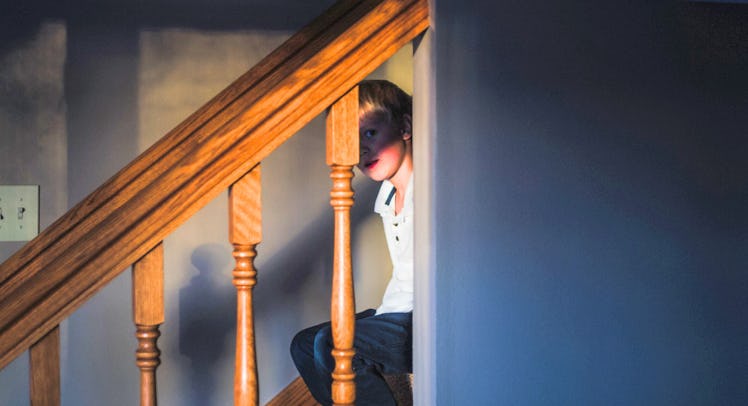Don’t Ground a Kid Without Having a Conversation
Parents are the human resource department of the home. When they come down hard, they need to explain why.

There are two modern schools of thought on child discipline: Talkers feel that judgments divide parents and children while Doers believe in punitive and discrete consequence to misbehavior. These different approaches are defined by different priorities, but not by different goals so it should come as little surprise that they are not mutually exclusive. When it comes to disciplining a child in a formalized manner — grounding is certainly the best example of this — the most effective parents tend to emphasize consequences while also taking the time to connect them to the specific emotional, physical, or relational damage risked by transgressors. Google may autocomplete the phrase, “Does Grounding Work?” but parents are unlikely to find tidy answers on that front because the “success” of a discipline strategy has everything to do with the perspective of the child being scolded.
Ask Dr. Laura Markham, author of Peaceful Parent, Happy Kids, if grounding works and she’ll answer with a leading question of her own: “How did it work for you?” Savvy fathers and mothers tend to respond by observing that grounding doesn’t necessarily change children’s behavior, but does tend to change how they feel about the “fairness” of their guardians.
Markham finds the universality of this response pretty compelling because it speaks to what parents want when they pass a judgment and what they can do to assure that outcome.
Markham argues that most parents want their children to be reflective and honest. That way lies understanding. But it can be a bit of a long road because kids aren’t logical actors. They must have cause and consequence explained. Conversations lead to realizations lead to longer term understandings. A kid stewing in their room isn’t going to be that reflective. A kid talking to dad might be if dad isn’t too imperious about the whole thing.
“If you’re trying to raise moral or ethical citizens, you don’t just want kids who are afraid of getting caught and punished,” Markham says. “You want kids who actually have reflected on what happened when they broke the rules. Not only what was the cost to them, but what was the cost to other people.”
Still, Michele Borba, author of UnSelfie: Why Empathetic Kids Succeed in Our All-About-Me World, asserts that there is room for punitive action. “Grounding only works if what you’re grounding the child from is something that gives them a little pain,” she laughs. Real consequences aid in behavior modification and, from Borba’s perspective, are best understood by both parents and children as part and parcel of a coherent broader strategy. The catch is that this requires parents not only know their children well enough to find a pain point that doesn’t cause acute suffering but understand their children’s motivations well enough to react appropriately.
“You’ve got to figure out what was the child’s intent,” Borba explains. “Because sometimes the kid could have have had a major mess-up by accident, so grounding them for five weeks would be absurd because the act doesn’t match the consequence.”
That said, Borba notes that grounding simply won’t work on some children. “Sometimes all it takes is a look, or to put your finger up,” she says. Some kids have a finely tuned sense of guilt. They take stuff away from themselves.
Either way, both experts agree, however, that grounding should probably be held until around middle school. “What happens in middle school is that the kids are getting out of your grasp in a way,” says Markham. “They hang out with friends after school and do their homework there, and pal around with their buddies, or stay after school for sports.”
Restricting those actions of the length of the “leash” can be, according to both Markham and Borba, a very effective tactic. It forces children to understand that their most important relationships take precedence and that independence must be earned. As long as there is a clearly communicated alternative behavior being communicated, children should learn from punishments–and fast.
“Ask them, ‘How’s that working out for you?,’” Markham suggests. “Then ask what are you going to do to make this better?”
This article was originally published on